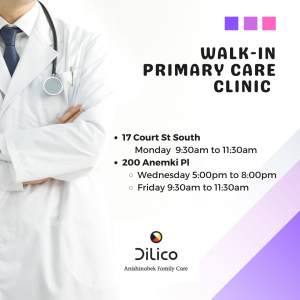Protection Services
Centralized Intake Services
To ensure that the health, safety and well-being of First Nation children are upheld and protected, Protection Services works to promote and enhance family strengths through collaboration and partnerships with families, communities and service providers.
The Process:
- As the first point of contact, Intake Screeners engage the caller to gather relevant and detailed information regarding the incident or condition that is causing concern.
- Next they find out what community the individual belongs to, to ensure the agency that the proper jurisdiction is servicing the family.
- They contact the appropriate First Nation to complete our Mikinaak Case conference.
- If an investigation into the concerns is deemed to be the best course of action, the case is assigned to a Child Protection Worker/Case Manager, whose duty it is to investigate, assess the safety of the child(ren), assess risk of future harm and determine if the case can be closed or is to remain open for on-going services.

Family Wellness Services
Many of the families we work with have experienced trauma or abuse, domestic violence, family breakdown and other issues that can continue to affect family dynamics. When ongoing protection concerns have been identified, Family Wellness Services works collaboratively with children, families and the First Nation to ensure the safety and well-being of children.
With a goal of family unity, services include intervention, advocacy, support and guidance. A Service Plan is developed collaboratively with the family to ensure the ongoing safety of the child(ren).

Child Wellness
The Child Wellness program also provides ongoing support, guidance and direction to children and youth up to the age of 18 who reside in an alternative care placement.

Kinship Service

Benefits of Customary Care and Kinship Service
Children have a right to maintain connections to their culture and traditional ways of life.
Children need love and care to grow up strong, safe and secure.
If you have concerns about a child, please contact Dilico immediately. 24-hours a day service is available.
The effects of child abuse can last a lifetime and can cause lasting effect on a child’s emotional and physical development. It can also extend to future generations as patterns of abuse and neglect repeat themselves. That’s why it’s so important to know the signs of abuse and neglect, and to take the right action when we see them to help our children and the future.
The signs of abuse can be hard to spot in some situations and a child might not feel comfortable about telling anyone about what is happening to them. In some circumstances, children and youth don’t even realize that they are being abused.
We all share responsibility for the well-being of children and youth. We owe it to them to do whatever we can to keep childhood a safe place to be.

